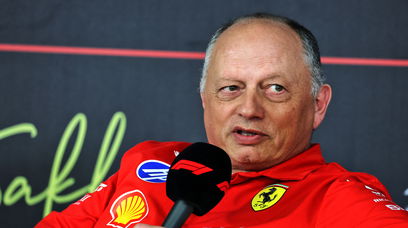Several F1 Team Principals have suggested that the era of the pay driver in the sport is over. In previous seasons, smaller teams would sometimes choose their driver line-ups based on the amount of sponsorship or investment that prospective candidates would bring to the team. However, opting for money over talent meant some drivers proved not to have the required skill and fitness levels to compete adequately. A notable example was Jean-Denis Deletraz, who qualified last for the 1995 Portuguese Grand Prix, some six seconds behind the next slowest driver, and 12 seconds behind pole position, before retiring from the race after 14 laps with cramp. Since then, the FIA has introduced several measures to ensure that aspiring F1 drivers are of the required standard to be competitive. This has included an overhaul of the Super License awarding criteria, with a points-based system now ensuring that drivers seeking to graduate to F1 must have achieved strong results in other categories of racing, as noted by AlphaTauri Team Principal Franz Tost. "The pay driver is out," Tost told media, including RacingNews365.com . "Most of the time, the pay driver is not the fastest, and the Super Licence stopped this, [because] a driver can only come into Formula 1 if he gets the points he needs for the Super Licence. "Nevertheless, it can be that the driver who gets a Super Licence is fast and brings a sponsor. This is the best [outcome for] a team, and it's always welcome."
Budget cap reducing reliance on pay drivers
Another factor that has diminished the importance of pay drivers was the introduction of F1's budget cap in 2021, which was designed to create a more level playing field by restricting the amount of money teams can spend. Coupled with the increasing value of F1 teams as the sport's popularity has grown, Haas Team Principal Guenther Steiner noted that pay drivers were no longer a necessary evil. "In the old days, you had teams which were financially not stable. Now we've got 10 very solid teams, so nobody needs to rely on a pay driver right now," said Steiner, whose team took on Nikita Mazepin in 2021 largely because of the money he brought to the team. "The ideal situation is you have got a driver which has the Super Licence points because he is good, and he has a sponsor behind him, and I think that is the direction in which we’re going. "Just paying your way in, not being good, it doesn't work. The teams don't want that, because now the Constructors' Championship position is more important than having a driver bringing you a little bit of money. "If you have some sponsors, you will have a chance, But if you're not good enough, you will not get in here anymore."
Academy programmes helping to produce talent
Several F1 teams also have dedicated academy programmes, which sees teams identify potential talents at an early age and part-fund their single-seater careers, with the possibility of graduation to F1 for outstanding candidates. Williams is one team with such a programme, and Team Principal James Vowles noted that this was another factor in ensuring that talent, rather than financial backing, will rise to the top. "You want to have drivers in the car that are performing at their utmost, so this is not about just bringing in a few million in order to satisfy the bottom line," said Vowles. "The few million comes from the Constructors' Championship by making a step relative your peers, so that's been a positive change for the sport. "Also what you're seeing now is [teams], including ourselves, investing right down at the level of karting and paying for drivers to come up through, but the point is the investment is there right at the junior levels, so that by time they come to us they're experienced individuals. "This concept of taking a few million to put someone in the car is not the way that we perform these days, otherwise you'll fall back."
Most read






